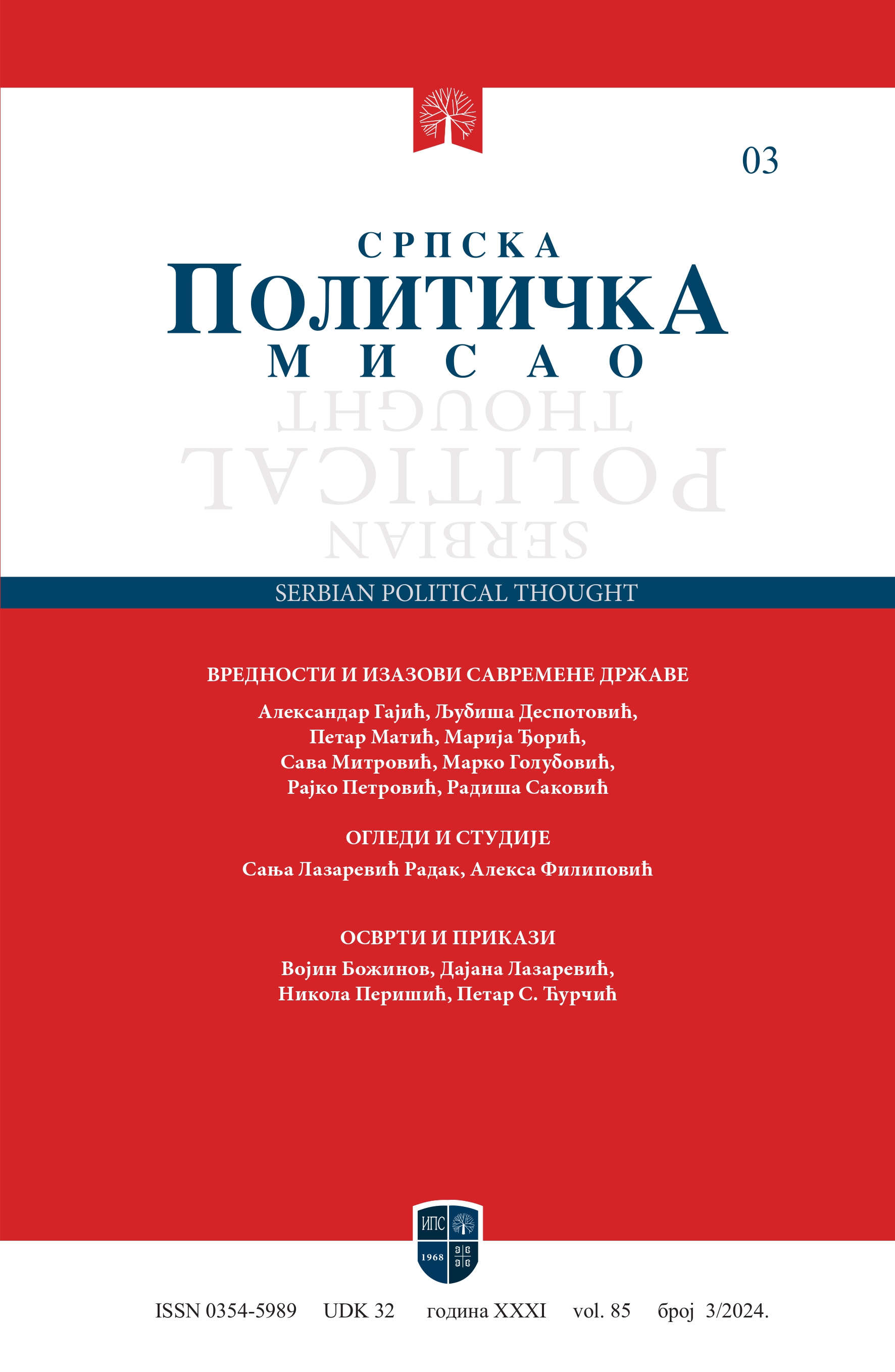POSTHUMANISM: HISTORY, GOALS AND IMMINENT PERILS
Abstract
The Paper studies the origin, development, main representatives, and basic characteristics of the posthumanist movement, its normative positions and goals (including its relation towards technology and nature), as well as the similarities and differences between modern posthumanism and transhumanism. In order to compare the posthumanist movement with humanistic modernism and notice their basic similarities and differences, which are crucial for understanding the relationship of man and technology towards natural conditions, the second part of the Paper points out the basic characteristics of modern humanistic anthropocentrism and its attitude towards technique. The final part of the Paper concerns the critique of posthumanism from the perspective of Christian personalism, which opens up possibilities for us to have a different view of the problems of postmodern living that posthumanism wants to overcome.
References
Gajić, Aleksandar. 2015. U vrtlogu tranzicije. Beograd: Institut za evropske studije.
Еlil, Žak. 2010. Tehnika ili ulog veka. Beograd: Anarhija/Blok 45 and Bratstvo iz Everona.
Fjodorov, Nikolaj. 1997. Filozofija opšte stvari. Beograd: Logos.
Florovsky, Georges. 1975. „The Metaphysical Premises of Utopianism“ in Collected Works, Vol. 12. Belmont, Massachusetts: Norland Publishing Company.
Fukuyama, Francis. 2004. "Transhumanism: The World's Most Dangerous Ideas." in Foreign Policy. no. Sept/Oct 2004: 42-43.
Fukujama, Fransis. 2003. Naša posthumana budućnost. Podgorica: CID.
Heidegger, Martin. 1977. The Question Concerning Technology and Other Essays. New York/London: Garland Publishing.
Holy Bible New King James Version (Burgundy) (Thomas Nelson (translator)) (2006). Nashville: Nelson Bibles.
Marcuse, Herbert. 1990. Jednodimenzionalni čovek. Sarajevo: Veselin Masleša – Svjetlost.
Miah, Andy. 2007. „Posthumanism: A Critical History“, in Gordijn, B. & Chadwick, R. Medical Enhancements & Posthumanity. New York: Routledge.
Pepperell, Robert. 2005. The Posthuman Manifesto. Kritikos 2/2005, II: 1-15.
Roden, David. 2010. [Online publication] «A defence of precritical posthumanism, Transcript of a Peper given at Nottingham Univer-sity’s Psychoanalysis and the Posthuman Conference». 07/09/2010.
Sorgner, Stefan Lorenz, Grimm, Nikola. 2013. „Introduction: evolution today“ in Sorgner S., Sorgner L., Jovanovic B. (eds.). Evolution and the Future. Anthropology, Ethics, Religion. Frankfurt am Main: Internationaler Verlag der Wissenschaften.
Talmond, Jacob. 1955. The Origins of Totalitarian Democracy. London: Norton &co.
Valera, Luca. 2014. “Posthumanism – beyond humanism?“. Cuadernos de Bioética XXV 2014/3: 481-491.
Valerštajn Imanuel. 2005. Posle liberalizma. Beograd: Službeni glasnik.
Viola, Francesco. 2010. „Umano e post-umano: la questione dell’identità“. in: Russo, F. (ed.) Natura cultura libertà. Roma: Armando: 89-98.
Weinstone, Ann. 2004. Avatar Bodies: A Tantra for Posthumanism. Minneapolis: University of Minnesota Press.

